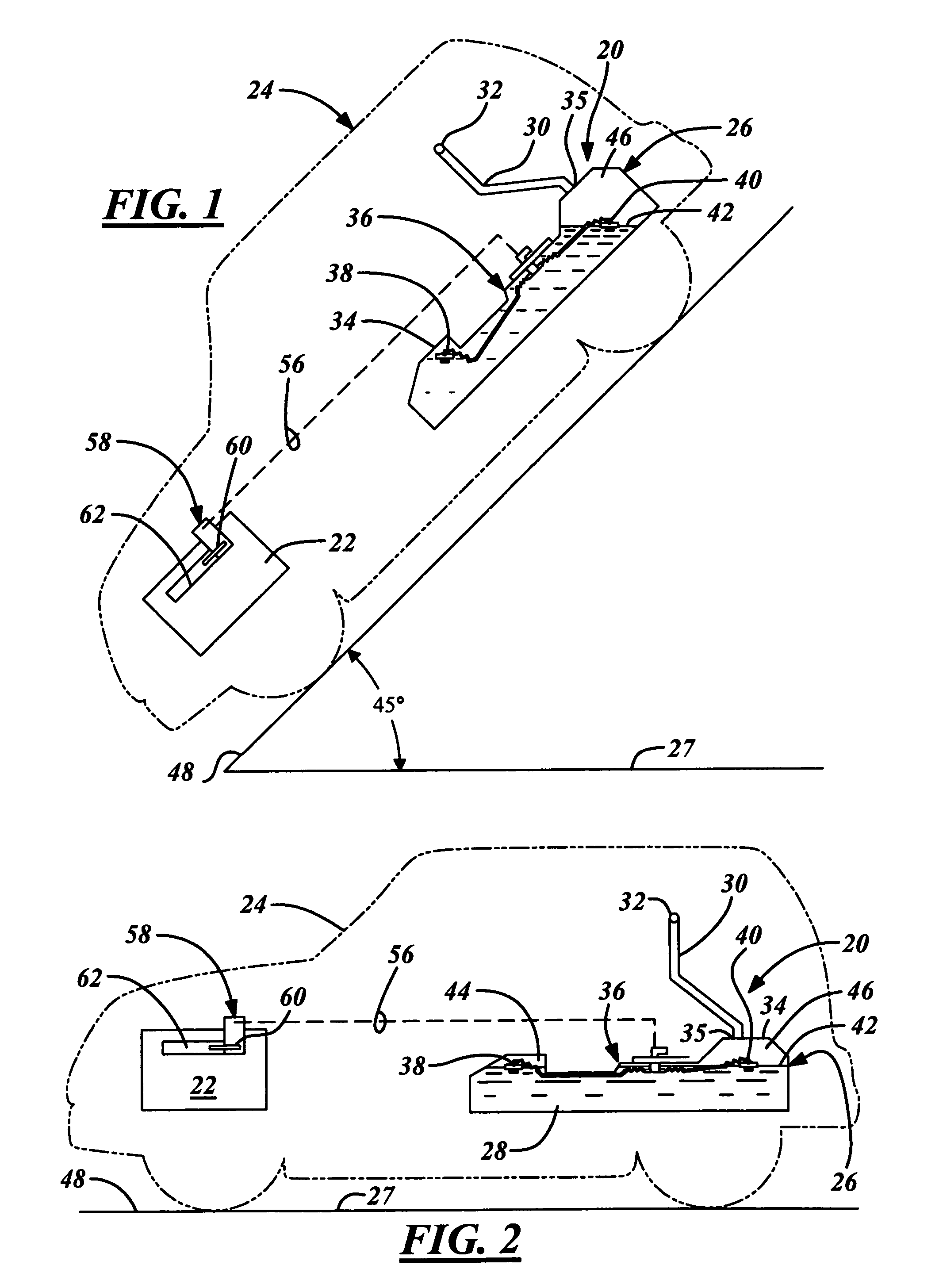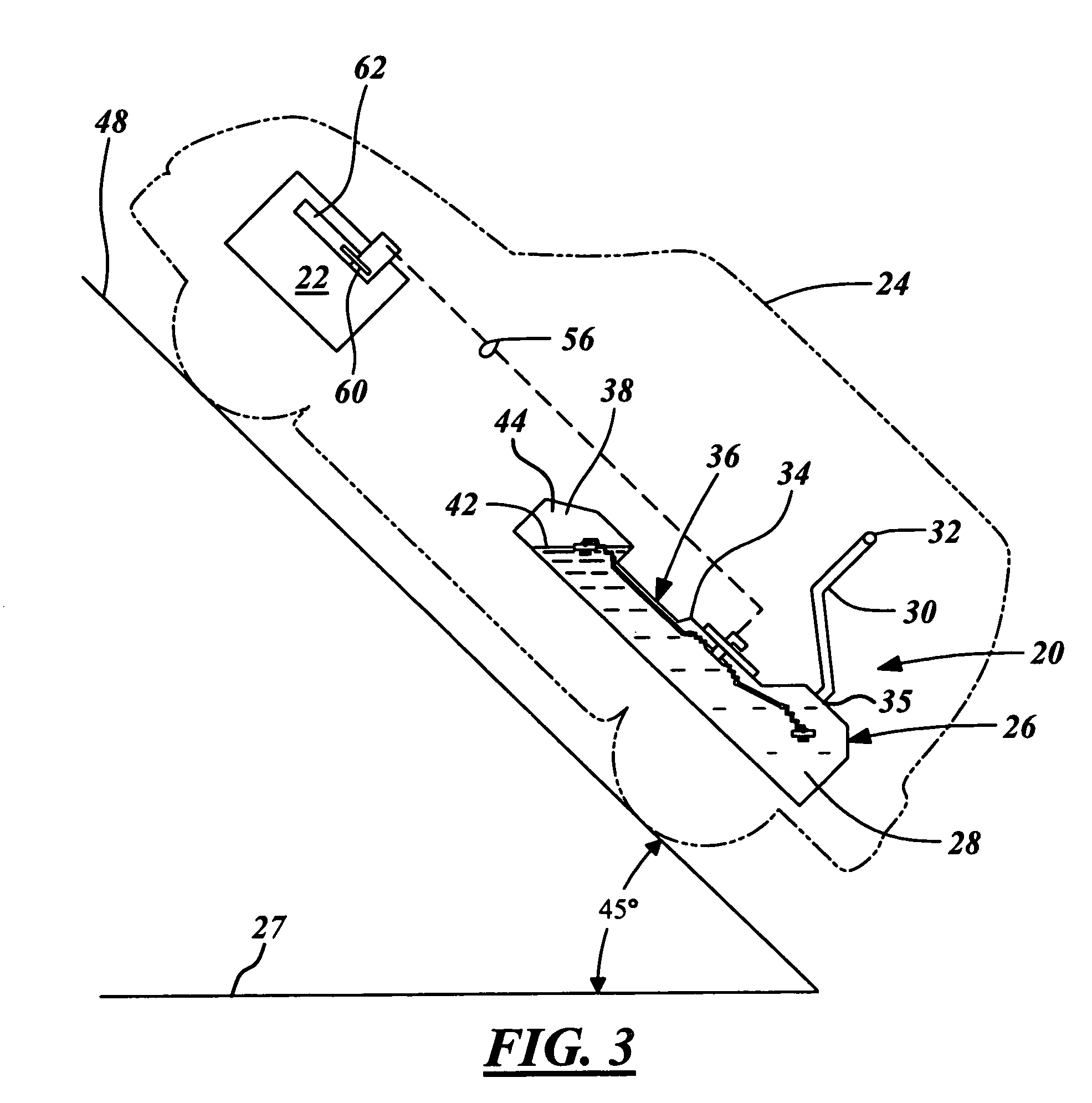Fuel storage system for a vehicle
a fuel storage system and vehicle technology, applied in the direction of valves, functional valve types, valve operating means/releasing devices, etc., can solve the problems of inconvenient maintenance, inconvenient maintenance, and inability to meet the needs of vehicles, so as to improve the pressure control of the fuel tank, reduce hydrocarbon emission into the environment, and improve the flexibility of vehicle fuel tanks
- Summary
- Abstract
- Description
- Claims
- Application Information
AI Technical Summary
Benefits of technology
Problems solved by technology
Method used
Image
Examples
Embodiment Construction
[0020]As best illustrated in FIGS. 1-5, a fuel storage system 20 according to one embodiment of the present invention generally stores on-board fuel for use in a combustion engine 22 of a vehicle 24. During normal refueling operations of the vehicle 24 when typically at a refueling station, a remote fuel pump having an automatic shut-off fuel pump nozzle is designed to quickly and conveniently refuel a tank 26 of the fuel storage system 20. When refueling at the station, government regulatory requirements dictate that an incline 48 of the vehicle 24, and thus generally the on-board fuel tank 26, falls within an approximate angular range of plus and minus three degrees with reference to an imaginary horizontal plane 27 (herein referred to as on-road refueling and best illustrated in FIG. 2). When refueling the tank 26 within this angular range, the fuel storage system 20 must receive the supply fuel at a predetermined high volumetric flow rate through a fill tube 30 without creating ...
PUM
 Login to View More
Login to View More Abstract
Description
Claims
Application Information
 Login to View More
Login to View More - R&D
- Intellectual Property
- Life Sciences
- Materials
- Tech Scout
- Unparalleled Data Quality
- Higher Quality Content
- 60% Fewer Hallucinations
Browse by: Latest US Patents, China's latest patents, Technical Efficacy Thesaurus, Application Domain, Technology Topic, Popular Technical Reports.
© 2025 PatSnap. All rights reserved.Legal|Privacy policy|Modern Slavery Act Transparency Statement|Sitemap|About US| Contact US: help@patsnap.com



